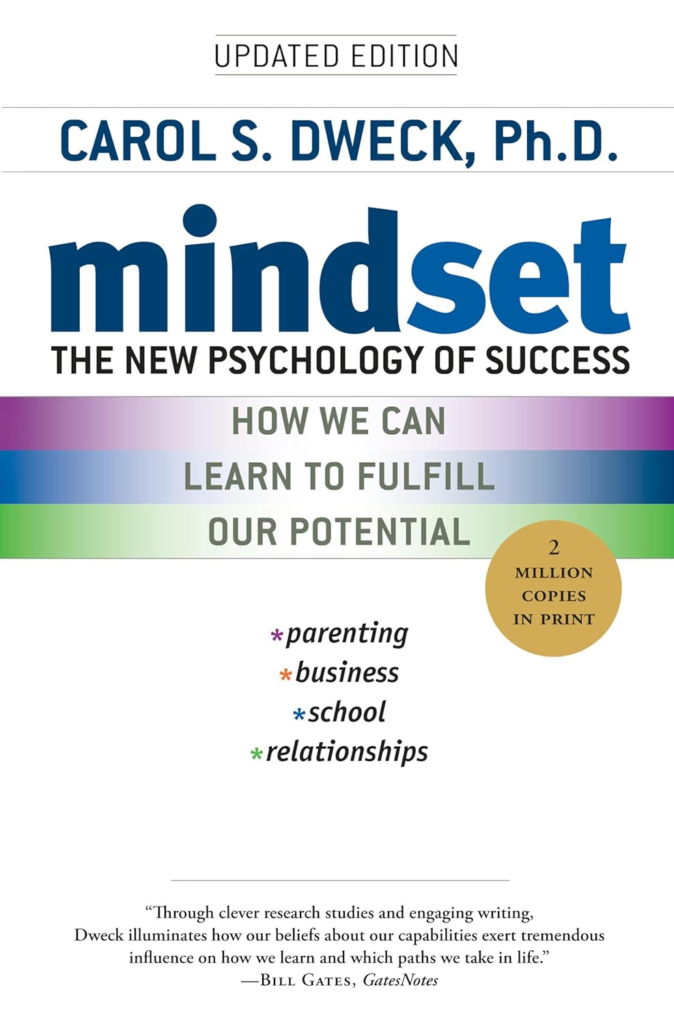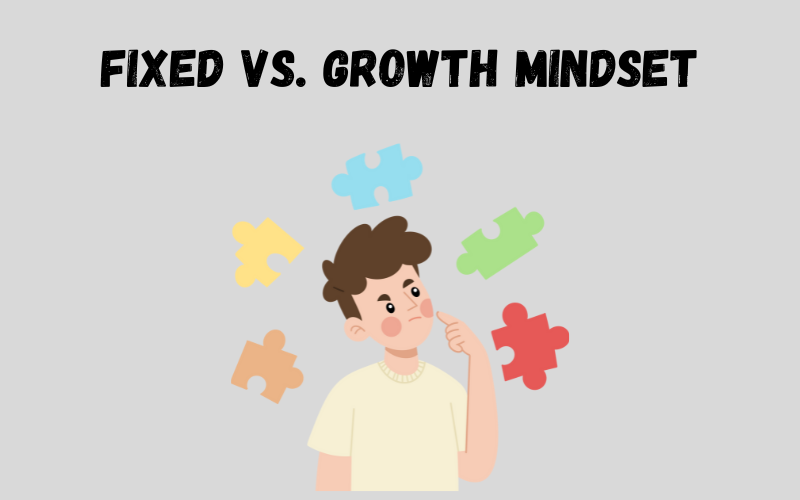Are you ready to unlock your full potential? If so, you’ve got to check out Carol Dweck’s amazing book, “Mindset: The New Psychology of Success.” It’s such an insightful and inspiring read that explores the concept of a “growth mindset” and how it can transform your life!
Imagine viewing challenges not as roadblocks but as opportunities for growth. That’s the magic of a growth mindset. Whether you’re striving for success in your career, personal life, or relationships, adopting a growth mindset can make all the difference. Dweck’s research reveals how our beliefs about our abilities can significantly impact our achievements and happiness.
In this book, you’ll discover the power of believing that you can improve, learn, and adapt. Dweck’s engaging writing style makes complex psychological concepts easy to understand and apply in your daily life. She shares stories from the worlds of sports, business, and education to illustrate how a growth mindset can lead to success and fulfillment. Below are a few examples of the differences between “Fixed versus Growth mindset”:
Table of Contents
1. Challenges:
– Fixed Mindset: “I avoid challenges because I might fail.”
– Growth Mindset: “I embrace challenges because they help me grow.”
2. Obstacles:
– Fixed Mindset: “I give up easily when I face obstacles.”
– Growth Mindset: “I persist through obstacles and learn from them.”
3. Effort:
– Fixed Mindset: “Putting in effort is a sign of weakness.”
– Growth Mindset: “Effort is the path to mastery.”
4. Feedback:
– Fixed Mindset: “I ignore or take criticism personally.”
– Growth Mindset: “I welcome feedback to improve.”
5. Success of Others:
– Fixed Mindset: “I feel threatened by the success of others.”
– Growth Mindset: “I find inspiration in the success of others.”
6. Learning:
– Fixed Mindset: “Learning should come naturally without much effort.”
– Growth Mindset: “Learning is a continuous process that requires effort.”
7. Abilities:
– Fixed Mindset: “My abilities are static and cannot change.”
– Growth Mindset: “My abilities can be developed with practice and dedication.”
8. Failures:
– Fixed Mindset: “Failures define me as a person.”
– Growth Mindset: “Failures are opportunities to learn and improve.”
9. Intelligence:
– Fixed Mindset: “Intelligence is fixed and unchangeable.”
– Growth Mindset: “Intelligence can grow with effort and learning.”
10. Challenges in Relationships:
– Fixed Mindset: “Relationships should be easy if they’re meant to be.”
– Growth Mindset: “Relationships require work and effort to grow.”
11. Creativity:
– Fixed Mindset: “I’m either creative or I’m not.”
– Growth Mindset: “Creativity can be developed through practice.”
12. Skill Development:
– Fixed Mindset: “If I don’t excel at something immediately, I’m not good at it.”
– Growth Mindset: “Skills take time to develop and improve with practice.”
13. Problem-Solving:
– Fixed Mindset: “If a problem is too hard, it’s not worth trying to solve.”
– Growth Mindset: “Difficult problems are an opportunity to improve my problem-solving skills.”
14. Risk-Taking:
– Fixed Mindset: “Taking risks is too dangerous and should be avoided.”
– Growth Mindset: “Taking risks is essential for growth and learning.”
15. Self-Belief:
– Fixed Mindset: “I can’t change who I am.”
– Growth Mindset: “I can change and grow with effort and perseverance.”
Here are 15 examples of parenting approaches contrasting fixed versus growth mindsets:
- Effort and Achievement
- Fixed Mindset: “You’re so smart; you got an A!”
- Growth Mindset: “You worked really hard and earned that A!”
- Dealing with Failure
- Fixed Mindset: “It’s okay, maybe math just isn’t your thing.”
- Growth Mindset: “What can you learn from this mistake? Let’s try to figure it out together.”
- Encouragement
- Fixed Mindset: “You’re naturally talented at soccer.”
- Growth Mindset: “Your practice is really paying off in your soccer games.”
- Facing Challenges
- Fixed Mindset: “If it’s too hard, maybe you shouldn’t do it.”
- Growth Mindset: “Challenges help us grow. Let’s find a way to tackle this together.”
- Praising Intelligence
- Fixed Mindset: “You’re a genius!”
- Growth Mindset: “I’m impressed by how you solved that problem.”
- Response to Struggle
- Fixed Mindset: “Some people just aren’t good at this.”
- Growth Mindset: “Struggling means you’re learning. Keep going!”
- Effort vs. Talent
- Fixed Mindset: “You’re a natural at painting.”
- Growth Mindset: “Your dedication to practicing painting is impressive.”
- Learning from Mistakes
- Fixed Mindset: “You made a mistake, that’s disappointing.”
- Growth Mindset: “Mistakes are part of learning. What did you learn from this one?”
- Persistence
- Fixed Mindset: “If it’s not easy, it’s probably not meant to be.”
- Growth Mindset: “Persisting through difficult times makes you stronger.”
- Seeking Help
- Fixed Mindset: “You shouldn’t need help if you’re good at this.”
- Growth Mindset: “Asking for help is a great way to learn.”
- Performance Feedback
- Fixed Mindset: “You did well because you’re gifted.”
- Growth Mindset: “Your improvement shows how much effort you’ve put in.”
- Problem-Solving
- Fixed Mindset: “Some problems are just too hard for some people.”
- Growth Mindset: “Every problem has a solution if you approach it with the right strategies.”
- Comparison to Others
- Fixed Mindset: “You’re better than most kids at this.”
- Growth Mindset: “Focus on your own progress and how you can improve.”
- Handling Criticism
- Fixed Mindset: “Criticism means you’re not good enough.”
- Growth Mindset: “Criticism is the feedback that can help you grow.”
- Goal Setting
- Fixed Mindset: “Set goals you know you can achieve.”
- Growth Mindset: “Set challenging goals that push you to grow and learn.”
These examples highlight how adopting a growth mindset approach in parenting can foster resilience, perseverance, and a love for learning in children.
So, are you ready to change your mindset and change your life? Grab your copy of Mindset: The New Psychology of Success on Amazon today and embark on a journey of self-discovery and personal growth!

Ready to change your mindset and change your life?


